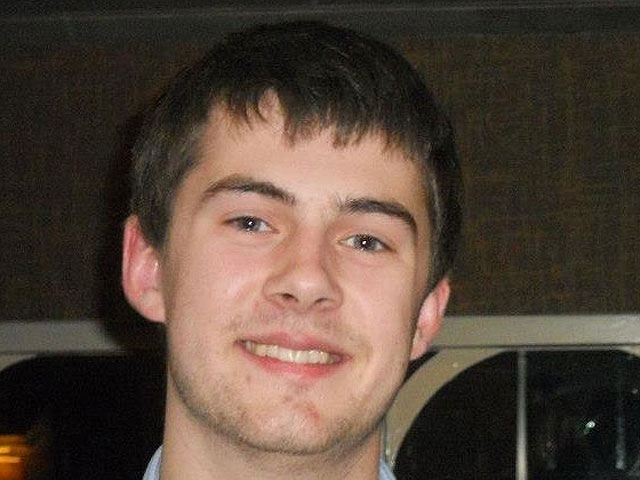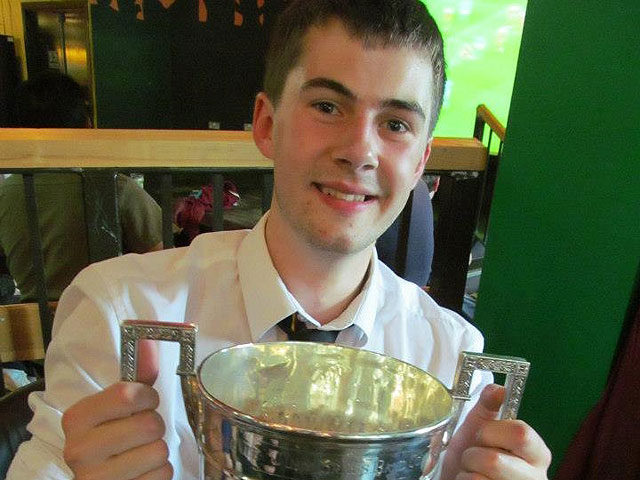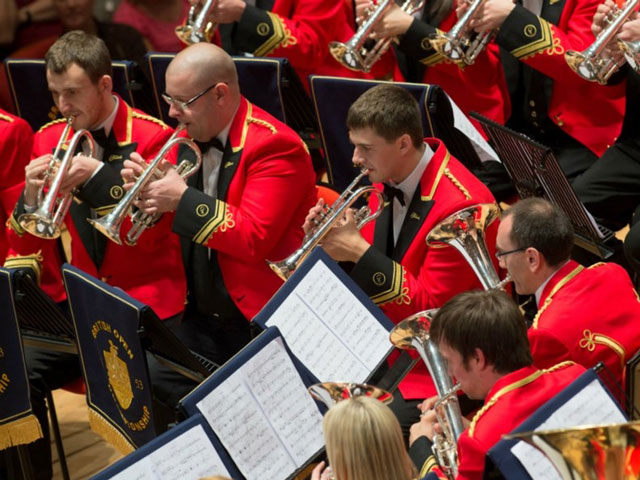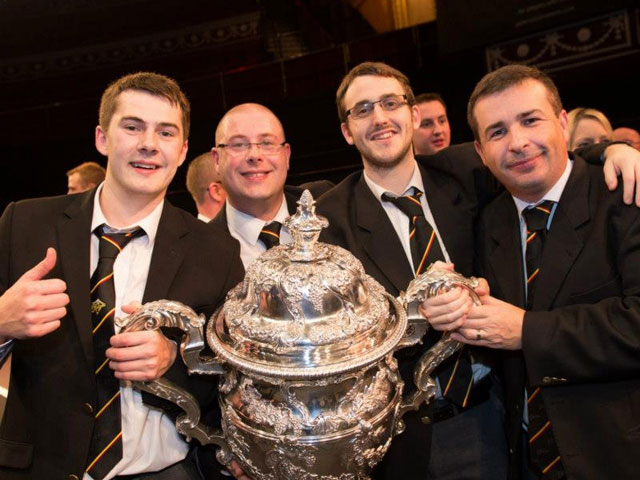
Malcolm Wood: You're just 19, and have been playing in brass bands since an early age, so where did the idea to be a composer come from?
Andrew Stevenson: My interest in composing really started in the first year of my A-Levels. As part of the music course I had to compose a piece of no less than 3 minutes, which I chose to score for brass band.
It was the first time I’d ever tried to compose anything, so it was very much just trial and error. I had to study a few scores to even know where to start!
I really enjoyed working on it though, so when it was finished I decided to experiment with a few ideas - first as just short chunks of music which quickly turned into writing full pieces.
Malcolm Wood: What composers influence you - and did you seek any advice from anyone about your style of writing?
Andrew Stevenson: I’d say my main influences are Peter Graham, Philip Sparke and Edward Gregson, but I couldn’t limit it to just those three.
I try to listen to as much music as I can from as many composers as possible, so I’m always getting inspiration from different people.
A few pieces I’m working on at the moment are certainly influenced by listening to Bruckner and Mahler for example.
I haven’t had any composition lessons as such, but I’ve studied a lot of scores and read quite a few books such as Denis Wright’s ‘Scoring for Brass Band’, which was particularly helpful when I first started.
However, I was lucky enough to be able to get in contact with Howard Snell, because his granddaughter was in my music class at school. He gave me some brilliant advice.

Malcolm Wood: So how valuable was Mr Snell's help and guidance?
Andrew Stevenson: Totally invaluable!
I’ve a lot of admiration for his compositions and arrangements - especially ‘Daphnis et Chloe’ - so to be able to talk to and receive guidance from such a musician was a brilliant opportunity.
He’s taught me so much in terms of composing and arranging and has given great advice on how to keep improving.
His guidance hasn’t stopped with composing either – as he’s also given performance tips too.
Malcolm Wood: Would you say you are still experimenting when it comes to finding a compositional style you are comfortable with?
Andrew Stevenson: Absolutely!
I feel that I’ve only scratched the surface of different compositional and musical styles. I still have a lot to learn and so I think every piece I write has something new to offer.
I don’t think I’ll ever stop experimenting; it’s what makes composing so much fun!
I find myself spending a lot of time working on short chunks of music rather than full pieces in order to find new ideas.
I can then use them in a piece I’m writing or base an entirely new piece around them. Since joining Foden’s in April I’ve been exposed to a lot more music and that’s helping a lot.

Malcolm Wood: And you've written pieces for other bands as well?
Andrew Stevenson: I’ve been very fortunate over the last couple of years to have had people that have really supported my composing - especially Newstead Welfare Band.
They proof read a number of my pieces and also played a few at concerts.
The MD, Duncan Beckley, put me in touch with Kirklees Music about publishing some music and I have two pieces almost ready for release at the moment: a cornet duet ‘For Good’ from the musical ‘Wicked’ and a longer original work called ‘Nottinghamshire Suite’.
Malcolm Wood: So how did the appointment with the Foden's Youth Band come about?
Andrew Stevenson: I initially took a couple of pieces down to Foden’s to get recordings of them.
Mike Fowles and Mark Bousie thought they would be a good challenge for the Youth Band and so I guess the position stemmed from that.
It’s something I really wasn’t expecting when I joined the band, but I’m glad I’ve been given the opportunity to get involved with the Youth Band.
Malcolm Wood: It must be a huge honour as well as challenge for you?
Andrew Stevenson: It really is!
The Youth Band is such a talented and hard working group, and to hear them play my music is a real treat.
I’m very grateful to have been given the opportunity to work with such a great bunch of people and I can’t thank everyone at Foden’s enough for the support they’ve given me when I bring new music down to them.

Malcolm Wood: You had a couple of pieces played at the recent Manchester Cathedral concert, including, 'Fanfare for the Future' and the 'Lament – Into the Unknown'.
Where did the inspiration for these come from?
Andrew Stevenson: They were both written earlier this year before the Youth Band was set up.
The ‘Fanfare’ was commissioned by the organisers of the Madhurst Festival in Sussex, which was held in August to raise money for the James Watson Memorial Fund.
I wrote the ‘Lament’ in memory of a talented musician, Rob Southwick, who worked with many local music and drama groups around Doncaster, where I’m from.
I worked with him a lot, but sadly he passed away at Easter, so the piece means a lot to me.
To have it performed in such a great venue by the talented young musicians in the Youth Band was a huge privilege.
Malcolm Wood: Are you in the process of writing anything else at the moment?
Andrew Stevenson: There are a few projects I’m currently working on, including a new piece for the Foden’s Youth Band, a cornet quartet for Richard Marshall and two more substantial works that I’m working on for fun to experiment with different ideas and techniques.
Malcolm Wood: You're studying Performance at the RNCM in Manchester, but are the Compositional MA Courses something you plan to look at as you plan your musical future?
Andrew Stevenson: It’s hard to say yet.
I still have another two and a half years at college so I don’t really know where that could take me.
In an ideal world I’d like to make a career out of composing, but whatever happens, I’m sure I’ll still be composing both for fun and for my publishing company, IMAS Music www.imas-music.co.uk that my fellow student, Iain Mundy, and I have just started.
I’m not sure whether I’d take a course in composing, although - it’s definitely something I’ll look into -but who knows what I’ll be thinking in a few years’ time.













